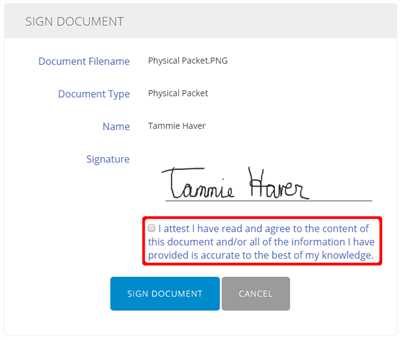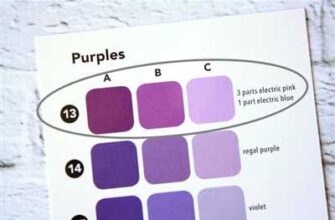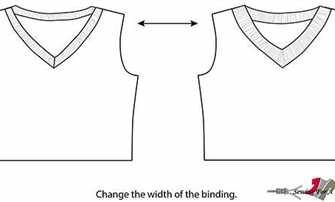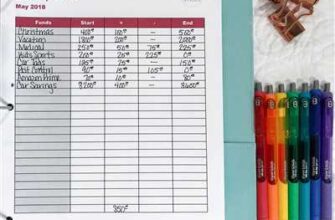
Signing documents is a common practice in many areas of life, including schools, the military, and the workplace. Whether it’s permission slips for school trips, emergency contact information, or official consent forms, having a parent’s signature is usually required. This article aims to provide students with a guide on how to properly obtain their parents’ signatures.
First and foremost, it’s important to remember that a signature serves as a personal representation of a person. It signifies that the named individual has read and understood the contents of the document. When collecting parents’ signatures, students should ensure that their parents sign using their own hand and not a pre-printed or digital signature.
One way to obtain a parent’s signature is to provide them with the necessary papers, such as the school handbook or consent form, and ask them to sign in person. This method is especially useful when the signature is needed for important documents that require a witness or are intended for legal purposes. It ensures that the signature is genuine and eliminates any doubts about its authenticity.
In some cases, parents might not be available to sign the document in person. In such situations, students can seek their parents’ signatures through alternative means. For instance, parents can sign the document in the presence of a trusted person, such as a family friend or a neighbor, who can act as a witness. This method is particularly useful when parents are outside of the country or are unable to physically sign the document.
It’s important to note that in certain instances, an electronic signature or consent via email can be accepted. However, the acceptability of such signatures may vary depending on the institution or the purpose of the document. It is always advisable to clarify with the concerned authority or organization before relying on digital signatures.
All in all, obtaining a parent’s signature is an essential part of ensuring the safety and well-being of children and students. Whether it’s for school field trips, medical forms, or insurance binders, parent signatures help schools and organizations collect the necessary information and consent from families. By following the guidelines provided above, students can obtain their parents’ signatures in a legal and responsible manner.
Parent’s Signature definition
The parent’s signature is a form of written consent or authorization provided by a parent or legal guardian for various purposes. It is commonly required in emergency situations, such as when a child needs medical treatment or when participating in school activities or field trips. The parent’s signature serves as proof that the parent has reviewed and approved the specific activity or decision.
Examples of situations where parent’s signatures are typically required include:
- Permission slips for school field trips
- Medical release forms for sports activities
- Consent forms for camp or retreat participation
- Transportation information for school bus or carpool
- Emergency contact forms for school records
- Insurance forms for coverage and claims
In Canada, parent’s signatures are legally binding, demonstrating that the parent or legal guardian has given permission or consent for the specified activity. It is important for parents to remember to sign these documents in order to ensure the safety and well-being of their children.
In some cases, the parent’s signature may also be required for adult students who are participating in high school or college-level programs.
When signing documents or forms, parents should use their full legal names and include the date. It is recommended to sign in blue or black ink to ensure the signature is visible and does not fade over time.
It is crucial for schools and organizations to keep these signed documents on file, as they may be needed later for various purposes, such as proof of consent or as a reference for insurance claims. Parent’s signatures may also be required by paramedics or other healthcare professionals in case of medical emergencies.
In situations where parents are unable to sign in person, alternative arrangements may be made. This can include witnessing the parent’s signature through a phone call or video conference, or allowing the parent to provide a digital or electronic signature.
It is important to note that the parent’s signature should always be obtained when necessary, as it ensures that all relevant parties are aware of and have agreed to the specified terms and conditions. This helps to create a safe and secure environment for children and provides a level of protection for both parents and organizations.
Parent’s signatures are vital in collecting important information and documentation for the safety and well-being of students. They help guarantee that responsible parties are aware of a child’s activities and can act accordingly if needed. The parent’s signature is a legal acknowledgment that the parent has reviewed and agrees to the terms outlined in the documents signed.
Examples of Parent Signature in a sentence

Parent signatures are typically required for various purposes in schools. Here are some examples of how parent signatures are used:
- Permission Slips: Parents usually need to sign permission slips to allow their children to participate in activities such as field trips, transportation, or school events.
- Medical Treatment: Parents’ signatures may be needed for their children to receive medical treatment, especially for non-emergency situations. This ensures that the parent is aware and gives consent.
- Emergency Contacts: Parent signatures are often required on emergency contact forms. This provides the school with the necessary information about who to contact in case of an emergency.
- School Policy Documents: Parents may need to sign school policy documents, such as handbooks or code of conduct, to acknowledge that they have received and understood the information.
- Insurance Forms: Parents may need to sign insurance forms to provide information about their insurance coverage, which can be used in case of any accidents or injuries at school.
- High School Level: At the high school level, parent signatures may be required for students to participate in certain activities or to secure work permits.
- Military Families: For military families, parent signatures may be required when deploying or when their children are going on military camp/retreat.
- Legal Documents: Parent signatures are needed on various legal documents, such as consent forms or agreements, to bind the parent to the terms stated in the document.
- Surviving Parent: In situations where only one parent is alive, the surviving parent may need to sign certain documents as proof of consent or authorization.
It is important to remember that parent signatures provide a way for schools to collect the necessary information and ensure the safety and well-being of the students. They help establish a clear line of communication and involvement between parents and schools.
Parents’
Parents’ signatures are often required for various purposes, especially when it comes to their children’s activities and school-related matters. Schools usually ask parents to sign consent forms, emergency contact information, and field trip permission slips.
Parents’ signatures serve as a legal binding agreement, indicating their approval and ensuring that they are aware of and willing to take responsibility for their children’s participation. These signatures serve as a testament that the parents have read and understood the documents they are signing.
For example, when students go on field trips, parents’ signatures are needed to authorize their participation and transportation. This signature also acts as a safeguard for the school, confirming that the parents are allowing their children to take part in the activity. In case of any emergency, the presence of a parent’s signature allows paramedics or other medical professionals to administer necessary treatment without delay.
In some cases, parents’ signatures may be required for additional purposes, such as when students possess certain medications or need special accommodations. These signatures ensure that the necessary information and instructions are provided to school personnel or designated individuals who will be responsible for the students’ well-being and treatment.
Parents’ signatures are also important when it comes to the handling of personal information. With increasing concerns about privacy and the internet, schools must have parental consent to collect and use certain personal data, valuable for administrative and educational purposes.
In the context of insurance and liability, parents’ signatures become even more crucial. Insurance companies often require parents’ signatures to acknowledge and accept the terms and conditions related to coverage for their children.
Parents’ signatures may also be needed when it comes to certain extracurricular activities, such as joining sports teams or clubs. These signatures indicate that the parents are aware of the risks involved and are allowing their children to participate.
Some examples of parents’ signatures can be found in student handbooks, medical consent forms, and camp/retreat permission slips. These examples can help parents understand what is expected of them when signing documents on behalf of their children.
In Canada, parents’ signatures are also required for those under the age of majority who wish to participate in military training or activities.
Overall, parents’ signatures are an essential part of ensuring the safety and well-being of children. They confirm that parents are actively involved in their children’s lives, fully understand the information provided, and are willing to take responsibility for their children’s actions and welfare.
Signatures
In various situations, signatures are required to validate information or provide proof of consent. A signature is a personal mark or sign made by an individual to indicate agreement, approval, or authorization. It is usually written above or beside a person’s printed or typed name.
When it comes to parents, their signatures are often needed for a variety of purposes. For instance, parents may need to sign documents such as permission slips or emergency contact forms for their children’s participation in school activities. In high schools, parents may be asked to sign their children’s handbooks or papers as a way of acknowledging that they are aware of the rules and expectations.
In some cases, parents may need to sign documents as witnesses or provide their signatures as proof of identity or consent. For example, if a child needs medical treatment and their parent is not available, a signed document from the parent is usually required to authorize the treatment. Similarly, when it comes to transportation purposes, parents may need to sign forms to allow their children to go on field trips or participate in camps or retreats.
Examples of signatures can vary depending on the individual and the context. Some parents may sign with a simple, legible cursive signature, while others may have more elaborate or unique signatures. It’s important to remember that a person’s signature is a personal and legally binding mark, and it should be treated with respect and used appropriately.
Collecting signatures from parents can be done in several ways. Some schools or organizations may collect signatures in person, either by providing a physical form for parents to sign or by having a sign-in sheet at an event. Other options include collecting signatures through email or other digital means, such as an online form or a digital signature platform.
When it comes to signing on behalf of someone else, such as for a minor child or a person who is unable to sign, the signature should be indicated as the parent or legal guardian’s. For example, if a child is too young to sign their name, the parent’s signature can be written with “Parent or Guardian” noted next to it. This helps indicate that the signer is acting on behalf of the child.
In some cases, parents may be required to sign multiple documents or provide their signatures regularly. It’s important to keep track of any signed documents and remember where they are filed. Binders or folders designated for important papers can help keep these documents organized and easily accessible when needed.
Signature etiquette varies, but there are a few general guidelines to remember. Signatures should be written clearly and legibly. If the document requires a printed name, make sure to write it neatly below the signature. When signing documents for official purposes, it’s essential to use the same signature consistently to create a recognized and legally binding mark.
In conclusion, signatures play a crucial role in a variety of contexts, from providing consent to proving identity. Whether in person or through digital means, signatures help ensure information and documents are safely and legally authorized by the appropriate parents or guardians.
Signature of a witness
A witness signature is often needed for various purposes, whether it is for a personal or legal matter. In some cases, a witness may be required to sign documents or provide their signature to verify the authenticity of a particular transaction or event.
For example, when children go on school trips or camp/retreat outings, parents usually sign a permission slip or form that allows their child to participate. In such cases, a witness may be needed to sign as well, confirming that they have witnessed the parent’s signature.
In other situations, such as the signing of important papers or works related to transportation, insurance, or military treatment, a witness signature may also be required. This is done to ensure that the person signing is aware of the content and implications of the document.
Witnesses can be any person who is not directly involved in the matter at hand. They can be someone from outside the involved parties, like a family member, friend, or even a colleague. The witness must be of a certain age, usually 18 years old or older, and possess a sound state of mind to bear witness to the signing of the document.
When signing as a witness, it is important to remember that the signature should be clear and legible. It is common to include the date of the signing above the signature line. The witness’s full name and/or their relationship to the person signing may also be included for additional clarity.
When documenting the witness’s signature, it is helpful to collect information such as their full name, address, and phone number to ensure that they can be contacted later if needed. This information is usually provided in a witness statement or as part of a witnessing handbook.
Some examples of when a witness signature may be required include:
| A parent’s signature when signing their child up for school |
| A witness signature when signing a contract |
| A witness signature on an insurance claim form |
| A witness signature on a will or other legal documents |
| A witness signature on the paperwork for military enlistment |
Witness signatures serve as a point of reference and validity, ensuring that the document in question is legally binding and enforceable. They help provide an additional level of assurance and protection for all parties involved, including parents, children, and other witnesses.
Источники
When it comes to signing parents’ signatures, there are several sources of information and guidance available:
| Handbook | A handbook or manual provided by schools, camps, or retreats usually contains the necessary information about how to sign parents’ signatures. It also explains the purpose, importance, and definition of parents’ signatures, and may provide examples and sentence templates for signing parents’ signatures. |
| Internet | The internet is a rich source of information on how to sign parents’ signatures. Various websites and forums offer tips, guidelines, and examples to help parents remember how to sign. It is important to double-check the credibility and accuracy of information obtained from the internet. |
| Personal Level | Parents can seek help from other families or friends who have experience in signing parents’ signatures. They can provide firsthand knowledge and tips for signing parents’ signatures. |
| Schools and Children’s Camps | Parents can contact the schools or children’s camps their children are going to attend for information and guidance on signing parents’ signatures. These institutions usually have specific guidelines and requirements regarding parents’ signatures. |
| Healthcare Providers | Healthcare providers, such as doctors, may offer guidance on signing parents’ signatures, especially when it comes to medical forms and treatment consent. They can provide examples and explain the importance of obtaining a signed parents’ signature. |
| Military | Military families may have additional guidelines and requirements for signing parents’ signatures, especially when it comes to matters related to deployment or transportation. Military handbooks or resources can offer specific information for signing parents’ signatures in these cases. |
| Emergency and Insurance | In emergency situations or when it comes to insurance papers, parents may need to sign parents’ signatures as a part of the treatment or insurance process. Paramedics, insurance agents, or healthcare providers can provide guidance on signing parents’ signatures in these situations. |
| Witness and Transportation | Parents may need to sign parents’ signatures as witnesses or to provide transportation consent for their children. Guidelines and requirements for signing parents’ signatures in such cases can be obtained from schools, camps, or local authorities. |
| High School Students | High school students who work outside of school hours may need their parents’ signatures for various purposes, such as work permits or contracts. Schools usually provide information and guidelines on signing parents’ signatures for these purposes. |
Remember, signing parents’ signatures is an important responsibility and should be done with utmost care. Properly signed parents’ signatures ensure the safety and well-being of the children and help in the smooth functioning of various activities and trips.










